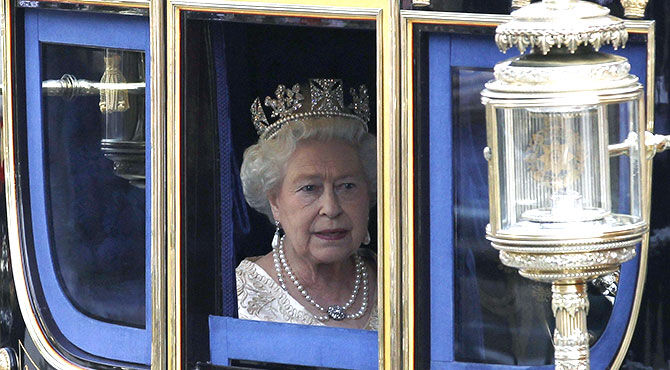UK commits to vague "Aussie-style" visa points system
The UK government's pledge on Monday to introduce a new, points-based immigration system from the beginning of 2021 has done little to clarify in employers' minds what the future scheme will look like.

Copyright Number 10 Downing Street, https://creativecommons.org/licenses/by-nc-nd/2.0/
 14 October 2019
14 October 2019How would the Australian points system work?
The Australian points system is based on such characteristics as applicants' age (25-32 being the highest-scoring group), educational qualifications, language proficiency, work experience and occupation. Unlike the current UK system for non-EEA applicants, it is not dependent on the person already having a job offer and, hence, is not reliant on a minimum salary threshold."The points system (in Australia) has been used over the decades to increase migration above the level that would be achieved by relying only on employer sponsorship," says Madeleine Sumption, director of the Migration Observatory at Oxford University and a member of the MAC.Have your say on UK immigration policy - the Migration Advisory Committee wants to hear from you
"However, it is not possible to say whether or how much introducing an ‘Australian-style points system’ to the UK would increase migration, without knowing how this system would be designed. A points system is simply a way of ranking and prioritising applicants for work visas."In principle, it would be possible to implement a restrictive points system that admitted relatively few people, or liberal one closer to the model used in Australia. A restrictive points system, for example, might require all workers to be sponsored by employers as well as meeting a points-based skills threshold. A system of this sort exists in Austria for skilled workers in shortage occupations, for example."
Brexit: the impact on recruiting EU staff to the UK
David Mills, a partner at law firm Mills & Reeve, also pointed out on Monday that, for all the assurances offered to existing EU27 workers already in the UK, the over-arching problem of Brexit had only magnified UK employers’ concerns about the recruitment and retention of European staff."But there are still a number of important facts we can be sure of, thanks to recent government announcements," he told Business Weekly."First, there will be no immediate change to the ability of EU citizens to come to the UK to work in the event of a no-deal Brexit. Deal, or no deal, the UK’s new immigration regime will not come into effect until 2021."Secondly, the absence of a withdrawal agreement will not affect the position of EU staff already working in the UK at the point of Brexit. They and their families will still be able to secure most of the rights that they currently enjoy as EU citizens by applying to the UK government’s EU Settlement Scheme."However, a no-deal Brexit will mean there will be no agreed transitional period. So EU nationals coming to the UK after Brexit but before the end of 2020 will not be eligible to apply for settled status."Instead they can apply for ‘Euro Temporary Leave to Remain.’ This will give them up to 36 months to work in the UK, after which they will need to apply for further permission to remain under the UK’s new immigration regime."It is at this point that the picture becomes less clear, since the new regime has not yet been finalised."Suffice it to say that the proposals floated in the Immigration White Paper would be significantly more restrictive towards workers from the EU, particularly those who are not highly skilled or working in shortage occupations."For more news and views, visit our dedicated Brexit section.
Subscribe to Relocate Extra, our monthly newsletter, to get all the latest international assignments and global mobility news.Relocate’s new Global Mobility Toolkit provides free information, practical advice and support for HR, global mobility managers and global teams operating overseas. Access hundreds of global services and suppliers in our Online Directory
Access hundreds of global services and suppliers in our Online Directory
©2025 Re:locate magazine, published by Profile Locations, Spray Hill, Hastings Road, Lamberhurst, Kent TN3 8JB. All rights reserved. This publication (or any part thereof) may not be reproduced in any form without the prior written permission of Profile Locations. Profile Locations accepts no liability for the accuracy of the contents or any opinions expressed herein.






































